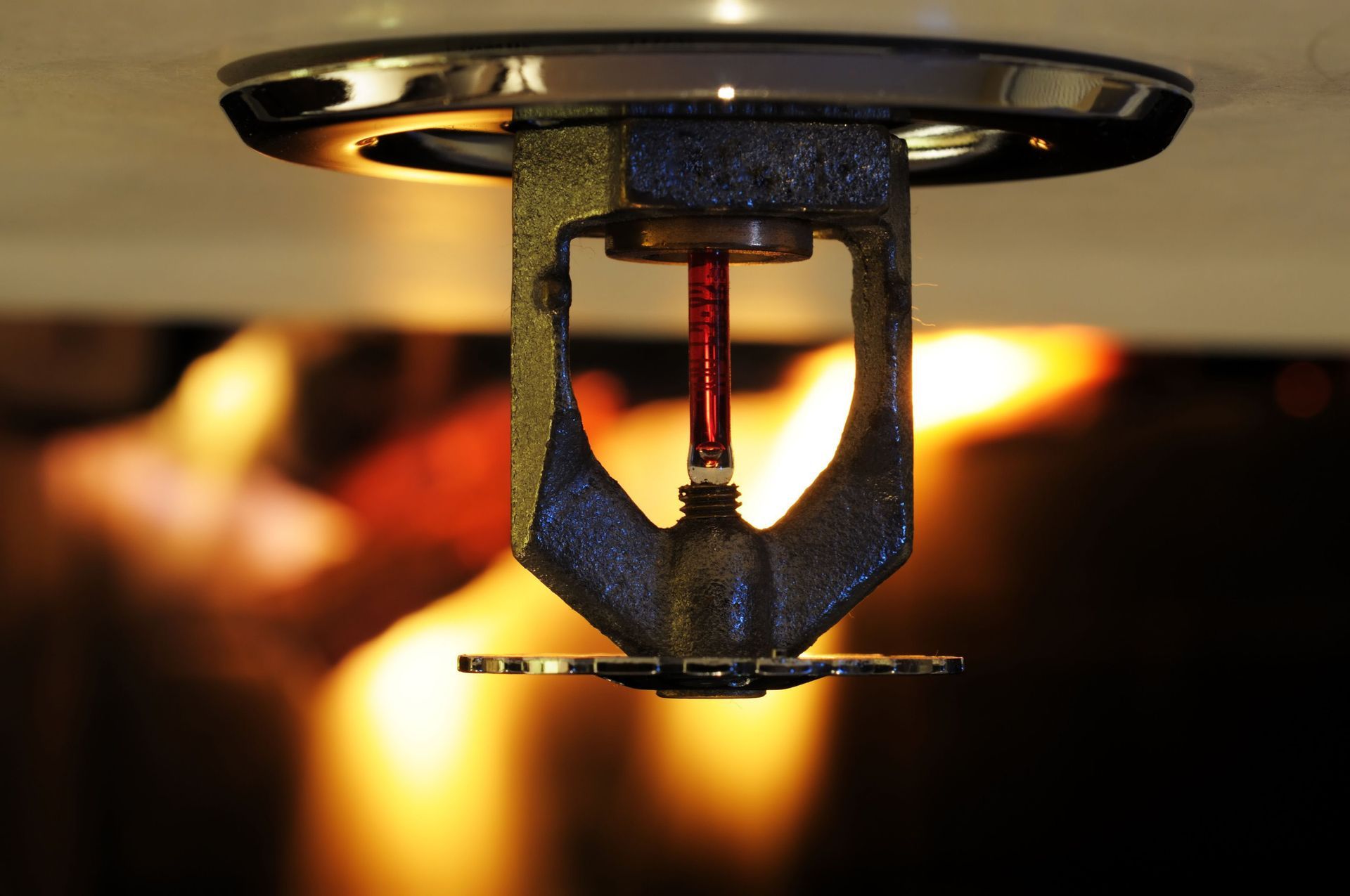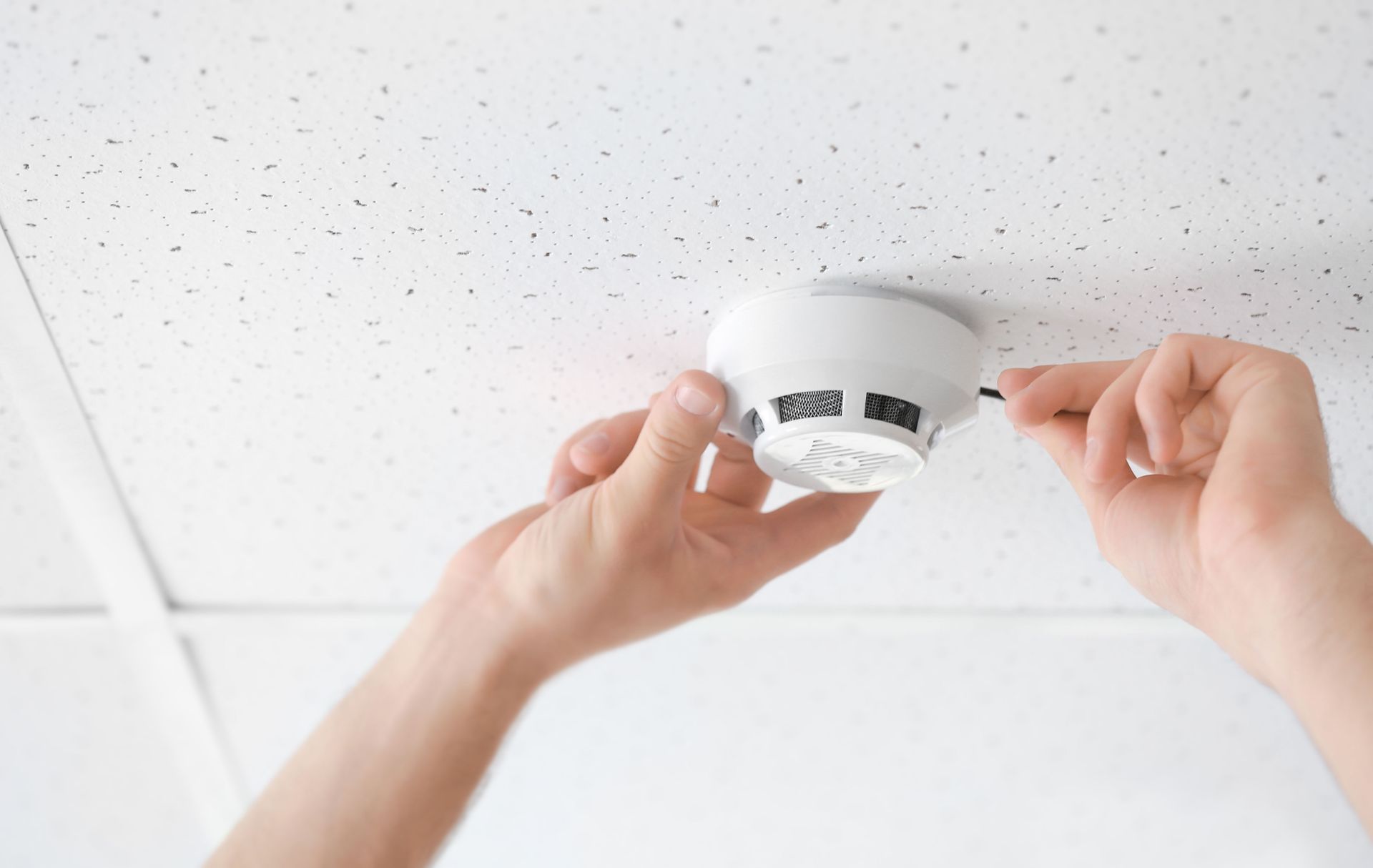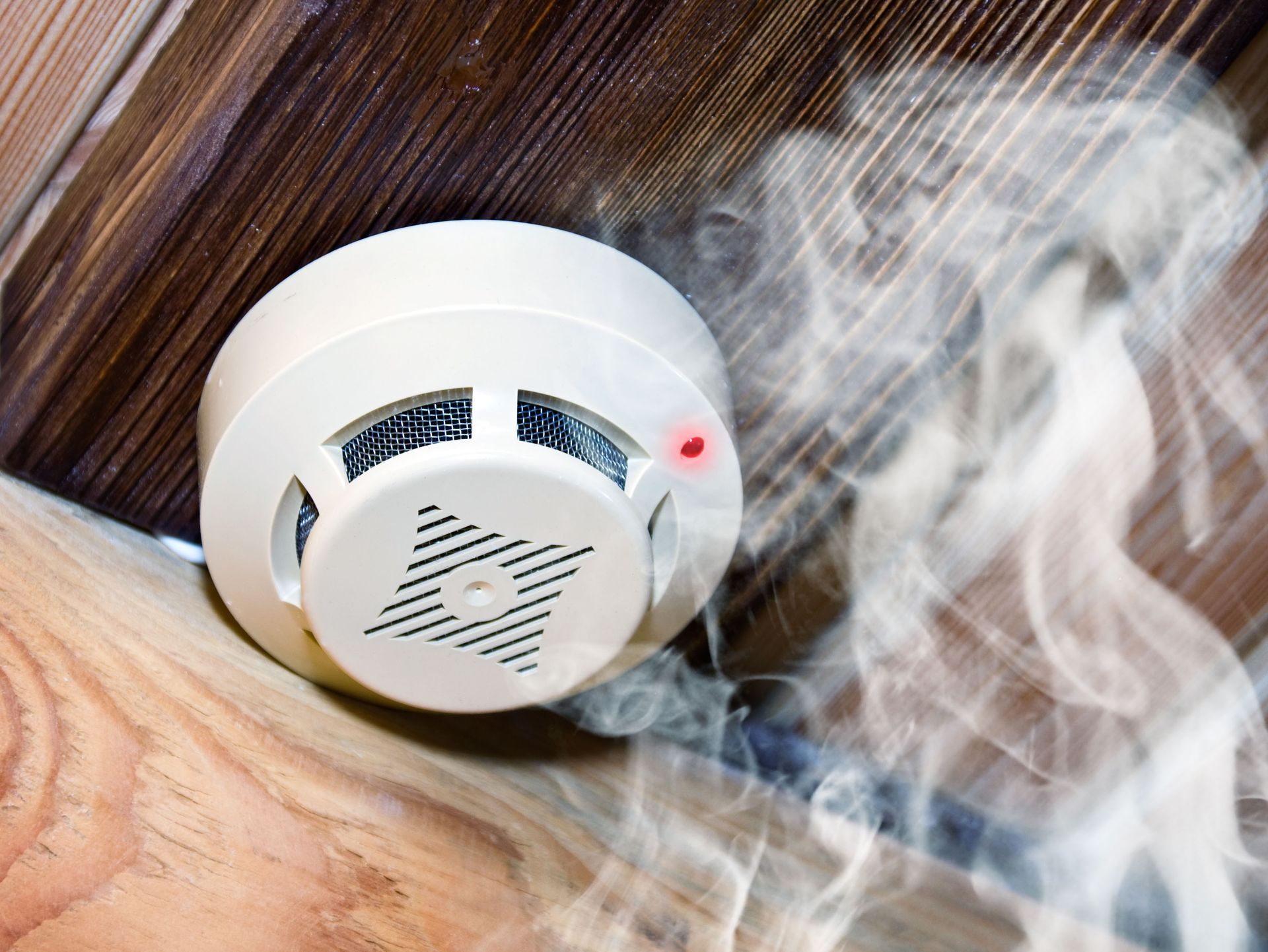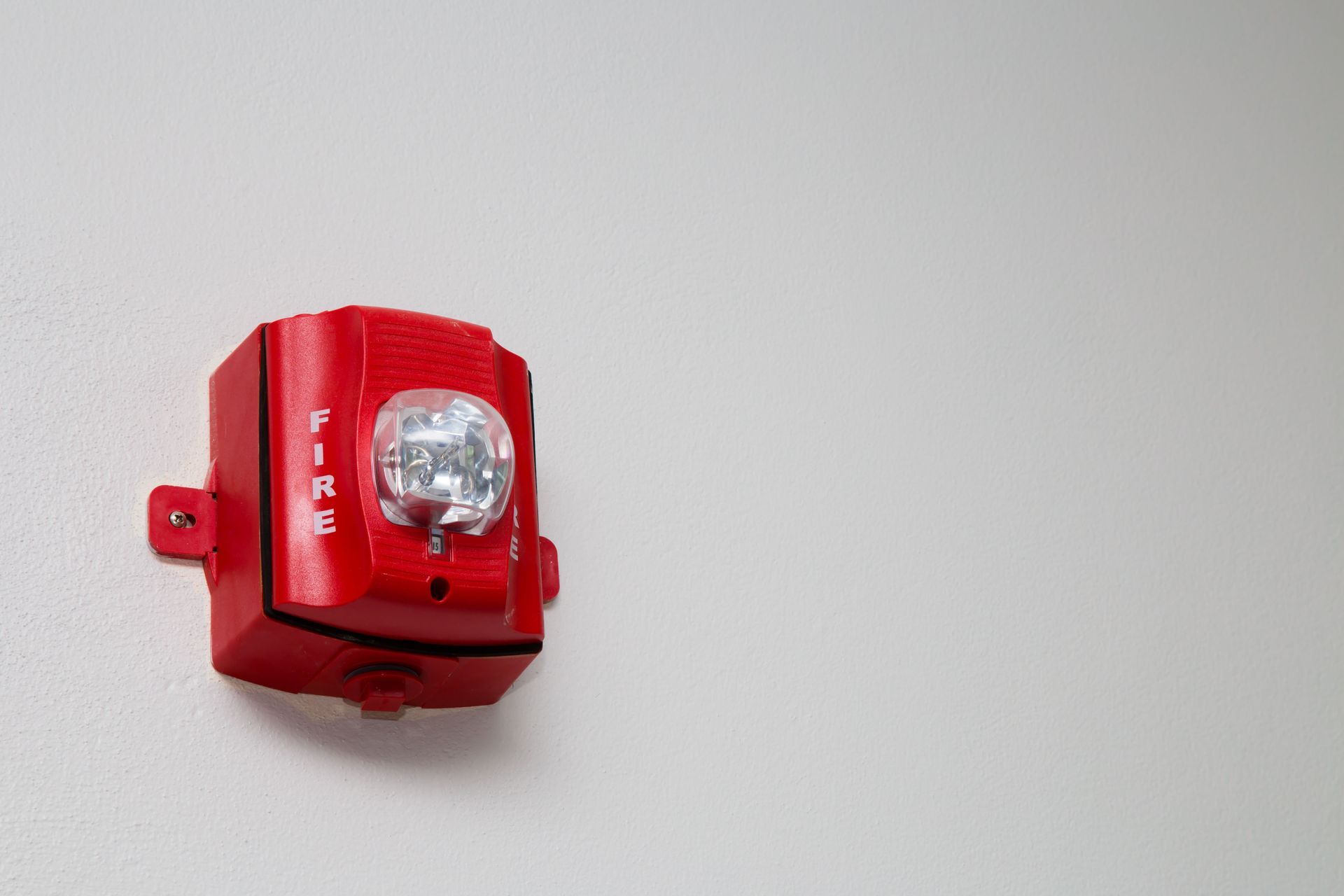The Dangers of Ignoring Fire Alarm Maintenance
Fire alarms are one of the most essential safety features in any home, workplace, or public building. They are designed to alert occupants of smoke or fire, providing critical time to evacuate and potentially save lives. Despite their importance, many people overlook regular maintenance, leaving their fire alarm systems vulnerable to failure when they are needed most. According to The Zebra, 3 in 4 Americans ignore smoke detector safety procedures, highlighting a concerning trend in neglecting this crucial safety measure. Failing to maintain fire alarms not only increases the risk of property damage but also endangers lives. Understanding the importance of upkeep, common risks, and legal requirements can help ensure these systems remain reliable in emergencies.
Why Is Regular Fire Alarm Maintenance Important?
Regular maintenance is essential to ensure fire alarms function as intended. Fire alarms contain sensitive components that can degrade over time. Dust accumulation, battery depletion, and electrical malfunctions are common issues that reduce a fire alarm’s effectiveness. Without routine inspections and upkeep, these systems may fail to detect smoke or fire promptly, delaying warnings and reducing the window for safe evacuation. In some cases, a malfunctioning alarm might not trigger at all, leaving occupants unaware of a developing fire until it is too late to react safely.
Maintenance also plays a key role in preventing false alarms, which can occur when sensors are clogged or damaged. Frequent false alarms not only disrupt daily life but can also lead to complacency, causing occupants to ignore alarms when a real emergency occurs. By keeping systems clean, batteries fresh, and components in good working order, property owners help ensure that alarms function reliably when it truly matters.
Regular upkeep also extends the lifespan of fire alarms. Just like any other essential safety system, neglecting care can result in premature wear, requiring costly replacements. Beyond the financial implications, proper maintenance provides peace of mind. Knowing that your fire alarms are fully operational ensures that in the event of a fire, occupants have a reliable warning system to alert them to danger. Ultimately, maintaining fire alarms is a simple yet critical step in safeguarding both lives and property, making it a responsibility that should never be overlooked.
What Are the Common Risks of Neglecting Fire Alarm Systems?
Neglecting fire alarm maintenance can lead to numerous hazards. A malfunctioning system may fail to detect smoke or fire in time, increasing the risk of injury or death. In many residential fires, occupants may not realize there is a fire until it is too late, largely because smoke detectors or alarms were not properly maintained.
Another significant risk is property damage. Fires can spread quickly, and early detection is critical to limiting destruction. Without functioning fire alarms, a fire can grow unchecked, leading to extensive damage that could have been mitigated with a working system.
Additionally, neglected fire alarms can cause false alarms. Sensors that are clogged with dust or have outdated wiring may trigger unnecessarily, leading to disruption and a potential desensitization to alarms over time. This “alarm fatigue” can result in slower reactions during a real emergency. Ultimately, the risks of neglecting fire alarms extend beyond immediate safety concerns, affecting property, finances, and overall preparedness.
How Often Should Fire Alarms Be Inspected?
Fire alarms require regular inspection to maintain optimal performance. Experts recommend testing smoke detectors and alarm systems at least once a month to ensure they are functioning properly. This monthly check typically involves pressing the test button on the device to verify that the alarm sounds as intended.
In addition to monthly testing, fire alarms should undergo more comprehensive inspections annually. This may include checking wiring, replacing batteries if needed, and ensuring that interconnected systems are properly synchronized. In commercial or public buildings, inspections may be required more frequently, often conducted by certified professionals who can perform detailed system checks and maintenance.
By following a consistent inspection schedule, both residential and commercial property owners can identify potential issues early, preventing malfunctions when alarms are needed most. Fire alarms are only effective if they are operational, and regular inspections are a simple yet critical step in ensuring safety.
What Are the Legal Requirements for Fire Alarm Maintenance?
Legal requirements for fire alarm maintenance vary depending on the type of property and local regulations. In many jurisdictions, residential properties are encouraged, if not mandated, to maintain functioning smoke detectors and fire alarms. For commercial buildings, schools, and public facilities, compliance with fire codes is strictly enforced.
For example, the National Fire Protection Association (NFPA) provides guidelines that require commercial properties to inspect and maintain fire alarm systems regularly. These guidelines often include annual inspections, periodic testing, and proper documentation of maintenance activities. Failing to comply can result in fines, increased liability in the event of a fire, and potentially higher insurance premiums.
Understanding and adhering to these regulations is crucial. Not only do they protect occupants, but they also safeguard property owners from legal repercussions. Regular maintenance ensures that fire alarms meet both safety standards and legal obligations, keeping everyone on the premises protected.
What Are the Signs of a Malfunctioning Fire Alarm?
Recognizing the warning signs of a malfunctioning fire alarm is vital for preventing system failure. One of the most common indicators is an alarm that fails to sound during testing. If pressing the test button does not trigger the alarm, it may indicate dead batteries, faulty wiring, or a defective unit.
Frequent false alarms are another red flag. While dust and humidity can cause occasional false triggers, repeated false alarms may suggest that sensors are malfunctioning or require replacement. Other warning signs include unusual noises such as chirping or beeping outside of regular testing, which often signal low batteries or internal system issues.
Additionally, outdated alarms can pose a risk. Fire alarms typically have a lifespan of 8 to 10 years. Devices older than this may not respond reliably, even with proper maintenance. Regularly reviewing the age of your fire alarms and replacing units as needed ensures that your system remains effective.
Being attentive to these warning signs allows property owners to take timely action, maintaining the reliability of their fire alarms and protecting occupants from preventable risks.
Fire alarms are a vital component of fire safety, and neglecting their maintenance can have severe consequences. Regular inspections, prompt repairs, and adherence to legal requirements ensure these systems function effectively, providing early warnings that save lives and minimize property damage.
Investing in fire alarm maintenance is not just about compliance or protecting property—it is about cultivating a culture of safety. By taking the time to check batteries, clean sensors, and replace aging units, property owners send a clear message to occupants that their well-being is a priority. Well-maintained alarms also reduce the risk of false alarms, ensuring that when an alert sounds, it commands immediate attention.
Moreover, maintaining
fire alarms can have financial benefits, as functioning systems may lower insurance premiums and mitigate potential losses in the event of a fire. Small, consistent efforts in upkeep create significant long-term advantages, both for safety and cost management. In the end, fire alarms only work when they are cared for, making regular maintenance a simple yet powerful step in protecting lives and property. If you want to keep your fire alarms in safe, working order, reach out to the team at Montalvo Palumbo Fire & Electrical Services today!





Share On: